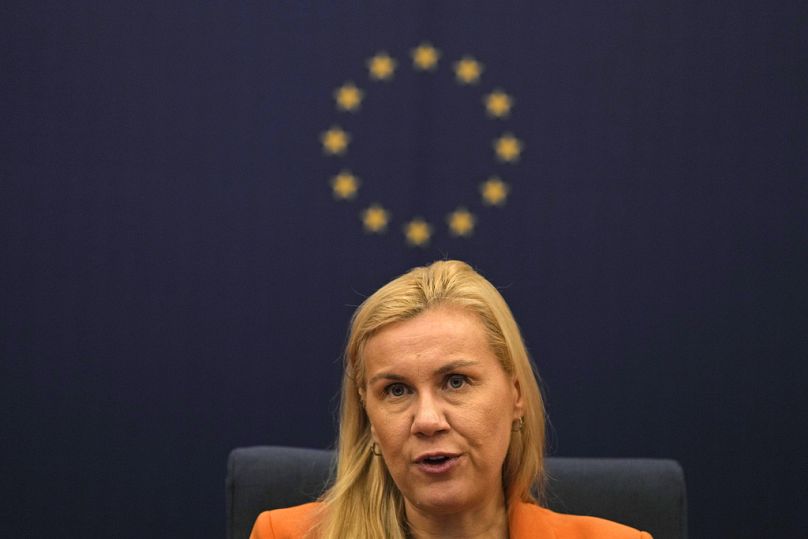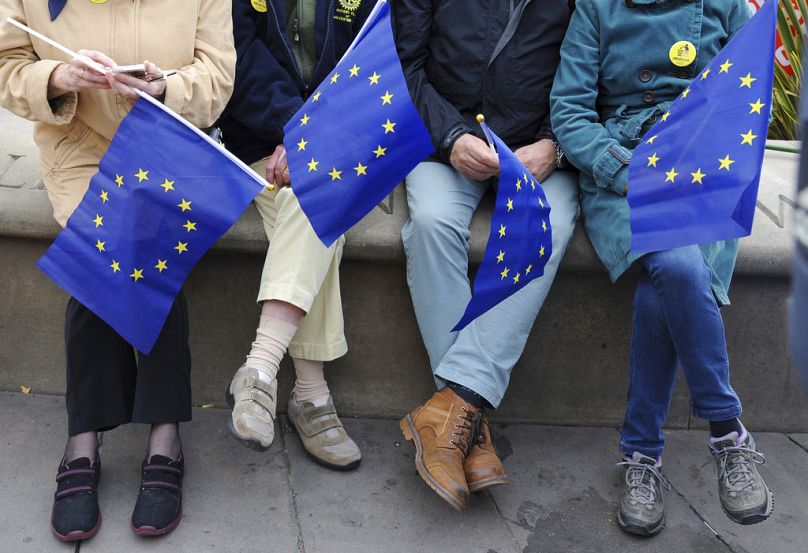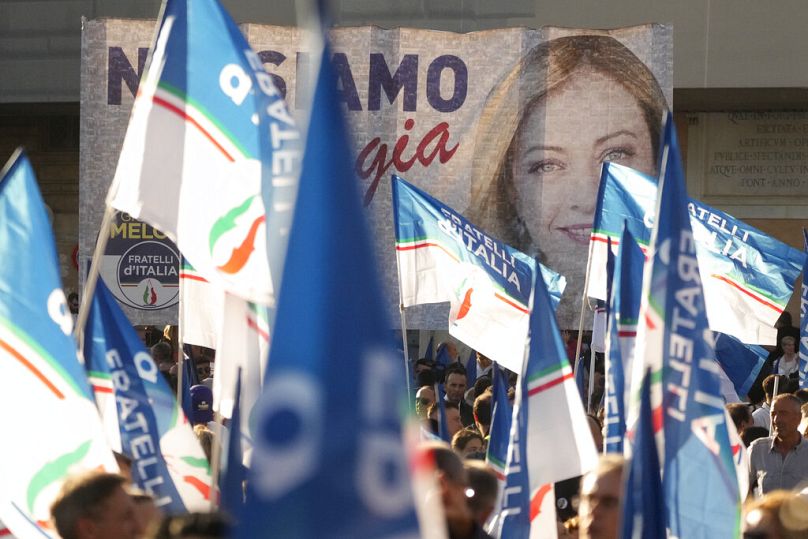If they want to take the wind out of the sails of their populist competitors in the upcoming European electoral campaign, democratic parties should propose a future European energy project that convinces citizens, Benedek Jávor and Taube Van Melkebeke write.
We risk an extension of the anti-EU, populist fog polluting the eastern European member states. The nucleus of this cloud remains, of course, the regime of Hungarian Prime Minister Viktor Orbán.
But recent developments in Hungary’s neighbouring countries show that we should be very wary of exceptionalism.
The Slovakian election put the pro-Russian SMER in the driver’s seat of their new government, and the Polish PiS party — although not entirely successfully — firmly pulled the EU-is-the-villain card in its bets to secure continuation in power.
It is of course not just the east. In most EU member states, extreme right and populist parties have been creeping closer to power.
In some, most recently Italy, that move crescendoed into delivering the head of state.
In the run-up to June 2024, when Europeans will cast their votes, EU actors must go full speed ahead attempting to nip this trend in the bud and swing back the pendulum. The clock is ticking.
Fresh European energy is needed
One critical channel to (re)build and maintain sustainable democracies — that would be able to resist populism — is the European Energy Project.
It is with energy that we light our streets, universities, and hospitals; that we produce and fuel our means of transport; and that we simply power our stoves with to eat, our tablets to work, and our lamps to read, talk or unwind.
The way the EU designs energy policy also has far-reaching consequences on its energy security and security more broadly, on its democracy, environmental sustainability, and social justice.
In fact, the whole European project is rooted in energy policy, starting with the establishment of the European Coal and Steel Community. Now, in high need of a fresh European breath, energy — again — can emerge as the foundation for the EU’s future.
Energy policy in the EU — and internationally — is often guided by the energy trilemma: equity, energy security, and sustainability. The current EU mandate’s track record on these dimensions is a mixed — and at the same time very full — bag.
On the sustainability dimension, we of course have seen the European Climate Law, the Green Deal and Fit for 55. On energy security, we had the REPowerEU-response to the effects of Putin’s war in Ukraine.
On the equity dimension, finally, there was the further development of the Just Transition Mechanism, the Social Climate Fund and some EU guidance on Member States’ policies to shield households from bearing the brunt of the energy crisis.
Involving citizens, a solution to existing obstacles
This overview clearly exposes the two main obstacles for the EU Energy Project to become a lever of EU cohesion and well-being in the member states.
Firstly, the three dimensions are managed and deployed separately, resulting frequently in unexpected and undesirable effects on the other two dimensions.
The design of the Green Deal package, for example, is essential for sustainability but left quite some gaps in the equity dimension of energy. It didn’t propose a fully-fledged script to put people including the most vulnerable ones — central to the green transition and thereby kept the doors to social backlash open.
Secondly, the link between the EU energy project and democracy is completely underlit. Energy policy carries enormous potential to strengthen the participation and ownership of citizens in the EU and member states’ political processes.
Citizen involvement in energy planning and decision-making can turn consumers depending strongly on big energy corporations into prosumers with access to data and knowledge, granting them much higher levels of autonomy.
It gives them ownership over their energy, strengthens their negotiating positions and ultimately the resilience and well-being of European societies.
Most EU governments have missed this link. Citizen consultation processes in both the National Energy and Climate Plans and the Just Transition Plans haven’t been conducted properly, with studies showing poor information flows to local communities, as well as insufficient time for citizens to engage if they were informed of that possibility.
A convincing energy plan could take the wind out of populists' sails
This fragmentation of the different energy trilemma pillars, as well as the energy-democracy blind spot, are in themselves problematic.
But in the face of (geo)political turmoil, fluctuating energy costs and a general cost-of-living crisis, they become bread and butter to populists.
If it addresses these stumbling blocks however, the EU can create a huge opportunity to turn its energy project from an arena for divisive politics to a common European flagship that strengthens the cohesion and resilience of the EU — both within and among its member states.
This approach must not remain a solely theoretical proposal to inform narratives and politics but has to find its way into practice.
The easiest way to kickstart this process is to adopt what we have called a "Four Dimensions of Energy Check" to policymaking, as discussed at last week’s Budapest Forum on Building Sustainable Democracies, which gathered EU and CEE decision-makers and experts.
Such a check should be applied to new energy proposals and used to evaluate the current policy framework. It should prevent new and adapt existing measures that neglect or even harm one or more of the four dimensions.
If they want to take the wind out of the sails of their populist competitors, democratic parties will have to be very clear on their offer in the upcoming European electoral campaign.
They can do so by proposing a future European energy project that convinces citizens. The Four Dimensions of Energy Check, tackling the current energy blind spots, can be their starting point.
Benedek Jávor serves as Head of the Representation of Budapest to the European Union, and Taube Van Melkebeke is Policy Manager at the Green European Foundation (GEF).
At Euronews, we believe all views matter. Contact us at view@euronews.com to send pitches or submissions and be part of the conversation.














